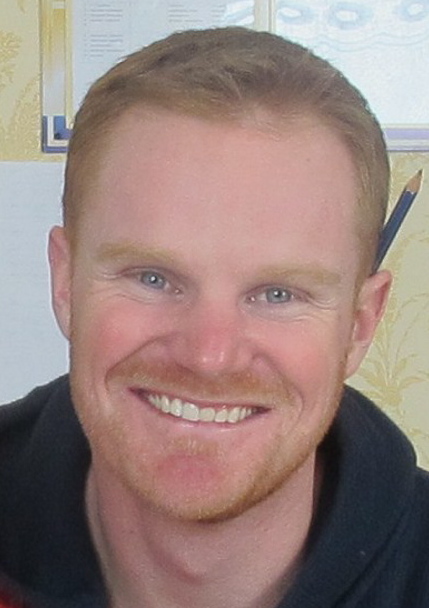Simon Williams listens to the shouts and fear of war and invasion in a place few Americans know and tries to decide what is true and not true. Russian troops have gathered on the border with Ukraine, supposedly to protect the lives of ethnic Russians. These are turbulent times in a distant corner of Europe where a former part of the Soviet Union wrestles with a future aligned with the European Union and NATO to its west or the remnants of a communist empire to its east.
To us, Ukrainians are strangers. To Williams, they are his friends and former neighbors. They were his students.
Williams, the Portland High and University of Maine graduate, brought America to the tiny, rural farming community of Dubovi Makharyntsi and taught English to its children and some adults. He brought baseball, the sport he loves most.
Williams played three years in the St. Louis Cardinals’ minor league system after that team drafted him in the spring of 2004. He played three more seasons in independent baseball. His last season was in 2009. He decided it was time to give back and joined the Peace Corps. His two-year assignment to Ukraine ended in June of 2013. Besides teaching, he realized his goal of helping build the village’s first athletic field for its soccer teams. Baseball was a hit when Williams played the game in the village but it wasn’t certain America’s pastime had taken root in the rich black soil that was the breadbasket of Russia in Czarist times.
Williams is the American they won’t forget. Before he left, many in the village of some 600 poured glasses of samahone, its home-brewed vodka, and toasted Williams with cries of “nazdorovya.” To your health.
“They made me promise to come back in two years with a wife and a year after that with a baby,” said Williams, sitting in a Bayside coffeeshop in Portland. The tall, irrepressible redhead didn’t say exactly how he would keep that promise. Only that he will go back.
After six weeks in Thailand studying yoga – he was one of two men in a class of 18 – he returned to Portland. He has a one-year job helping students at Lyseth Elementary School in Portland. He’s the new hitting coach at Bowdoin College and a hitting instructor at Maine Hits in Scarborough.
He has plans to teach and coach and mentor. Already he is thinking of how to get Bowdoin ballplayers into local classrooms to serve as examples. He learned from his last season in Kalamazoo, Mich., when the team signed autographs after each game.
“My girlfriend at the time noticed it,” said Williams. “The kids didn’t care if we won or lost. They wanted to talk to a ballplayer.”
He learned that language need not be a barrier to communication. When Williams arrived in Ukraine he discovered his body language and his energy could speak for him. It was easy to teach throwing and catching a baseball and how to hit.
When Williams left Dubovi Makharyntsi, he was conversant in Ukrainian or the Ukrainian-Russian dialect.
He traveled throughout the country by train, paying for economy class tickets. He walked into compartments that seemed more like two bunk beds with a table between. His presence usually stopped conversation. Who was this stranger who didn’t look Ukrainian?
Williams would speak their language and soon enough smiles would appear followed by the ubiquitous vodka and thick, meat sandwiches.
Only when Williams tried to talk politics did he discover his command of the language wasn’t good enough.
He doesn’t believe Russian President Vladimir Putin will order troops across the border.
If it happens, Williams says his friends in Dubovi Makharyntsi will ride out any storm. They are earthy, simple people who live three hours by train from Kiev, Ukraine’s capital. Many have not yet made that trip. They are proud of their independence and aware their land has been used as a battleground again and again. Think Cossacks, the arrival of Communism and the Russian Civil War. Think World War II.
Friday, Williams was on the sideline as Bowdoin played Bates in their conference opener at Southern Maine Community College. A stiff breeze off harbor waters hit batters in the face. By the end of the game, the temperature was a few degrees above freezing.
Williams didn’t ride the team bus back to Brunswick. He went to his home in Portland and stepped into a hot shower. Last winter he bathed out of a bucket in the one-room house that was his home. He had electricity but no televison. “I still don’t have a television.”
He will return to Dubovi Makharyntsi. Maybe he’ll bring his baseball glove. No doubt the villagers haven’t forgotten Simon Williams. Which means they haven’t forgotten how to throw, catch and hit.
Steve Solloway can be contacted at 791-6412 or at:
ssolloway@pressherald.com
Twitter: SteveSolloway
Send questions/comments to the editors.



Success. Please wait for the page to reload. If the page does not reload within 5 seconds, please refresh the page.
Enter your email and password to access comments.
Hi, to comment on stories you must . This profile is in addition to your subscription and website login.
Already have a commenting profile? .
Invalid username/password.
Please check your email to confirm and complete your registration.
Only subscribers are eligible to post comments. Please subscribe or login first for digital access. Here’s why.
Use the form below to reset your password. When you've submitted your account email, we will send an email with a reset code.